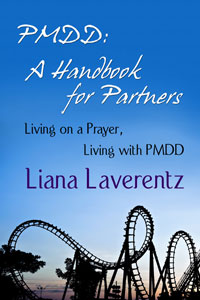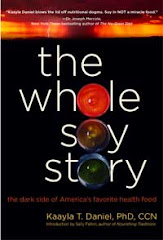This event is for you if you are a menstruator with PMDD.
Sunday, April 18, 2021
Free Online PMDD Healing Summit Starts April 25!
Sunday, April 4, 2021
April is PMDD Awareness Month
This month, 41 landmarks around the world will light up teal for PMDD awareness! If you're able to visit a light-up near you, tag IAPMD @iapmdglobal on Instagram and use #PMDDAwarenessMonth2021 so we can share with the community. It's a beautiful experience to see these light-ups both in-person and online .Below you'll find the official light-up schedule separated by country and organized by date. All light-ups will run from dusk until dawn unless otherwise noted.
USA
- New York City, NY | April 1 - Helmsley Building
- Minneapolis, MN | April 2 - I-35W St. Anthony Falls Bridge
- Niagara Falls, NY | April 4 at 10-10:15 pm EDT - Niagara Falls
- Chattanooga, TN | April 4-24 - The Block
- Highland, NY | April 9 - Franklin Delano Roosevelt Mid-Hudson Bridge
- Denver, CO | April 11 - McNichol's Civic Center Building
- Boston, MA | April 14 - Zakim Bridge and Longfellow Bridge
- Worcester, MA | April 14 - Burns Bridge
- Quincy/Weymouth, MA | April 14 - Fore River Bridge
- St. Louis, MO | April 15 - McDonnell Planetarium
- Philadelphia, PA | April 16 - One & Two Liberty Place
- Nashville, TN | April 16 - Korean War Veterans Memorial Bridge
- Portland, ME | April 17 - Portland City Hall
- Kalamazoo, MI | April 19 - Kalamazoo City Hall
- Honolulu, HI | April 20 - Aloha Tower
- Philadelphia, PA | April 20 - Cira Centre South
- Gilbert, AZ | April 25 - Gilbert Water Tower
- Oklahoma City, OK | April 26 - Skydance Bridge
Canada
- Toronto, ON | April 1 - CN Tower
- Lethbridge, AB | April 3 - Lethbridge City Hall
- Calgary, AB | April 5 - Telus Spark
- Cambridge, ON | April 5 - Cambridge Pedestrian Bridge
- Regina, SK | April 5-9 - Regina City Hall
- Toronto, ON | April 6 - 3D Toronto Sign
- Halifax, NS | April 7 - Halifax City Hall
- Edmonton, AB | April 10 - High-Level Bridge
- Vancouver, BC | April 24 - BC Place
- Calgary, AB | April 28 - Calgary Tower
- Vancouver, BC | April 30 - Sails of Light at Canada Place
UK
- Lancaster, England | April 8 - Ashton Memorial
- Rochester, England | April 17 - Rochester Cathedral
- Glasgow, Scotland | April 23 - Glasgow Women's Library (in lieu of a building light-up they'll be shining a light on PMDD on social media)
- Edinburgh, Scotland | April 30 - Edinburgh Castle
- Belfast, Northern Ireland | April 30 - Belfast City Hall
- Northampton, England | University of Northampton will be showcasing a short video about PMDD on their Tower Screen throughout April
Australia
- Perth, WA | April 1 - The Bell Tower
- Sydney, NSW | April 12 - Royal Botanic Gardens (closed to the public)
- Brisbane, QLD | April 15 - Story Bridge and Victoria Bridge
Netherlands
- Muiden, Netherlands | April 6 - Muiderslot Castle
Along with the light-ups, you can get involved with PMDD Awareness Month by joining the PMDD Awareness Challenge on Instagram, taking the PMDD Pledge, or starting a community fundraiser.
Sunday, November 15, 2020
Singer-Songwriter, Grace Gonzalez, Joins Forces with Global Charity to Raise Awareness for Debilitating Health Condition That Puts Women “Out of Commission” for Nearly Half Their Life
BOSTON, MA, October 2020 -- Singer-songwriter, Grace Gonzalez, first found musical success when her songs gained the attention of Grammy-Award winning producer Trina Shoemaker, American Songwriter Magazine, chosen as a Yamaha guitar ambassador, and in a 2020 Toyota U.S. ad campaign featuring her own, “Little Piece of Home.” Now, Grace has turned her musical talents to a life-saving cause with the release of her new single, “Out of Commission.”
“Out of Commission” is about mental health and specifically the cyclical anxiety and depression that takes Grace out of commission after she ovulates or 10 days before her period each month. The condition she suffers from, Premenstrual Dysphoric Disorder (PMDD), is a life-threatening cyclical, hormone-based condition that is commonly underdiagnosed, misdiagnosed or dismissed entirely by many in the medical community. PMDD impacts approximately 1 in 20 women and AFAB (assigned female at birth) individuals of reproductive age - a staggering 60 million worldwide. Symptoms include severe depression, mood swings, irritability or anxiety in the two weeks before menstruation.
“I have received my deepest inspiration during “hell week,” said Gonzalez. “It is in that time, where I feel so disconnected from myself and the world, that I can channel my suffering into songs. I feel so lucky for the gift of songwriting and don't know how I would get through the depths of PMDD without it. And I’m honored to help shine a light on this devastating condition by working with the International Association for Premenstrual Disorders (IAPMD).”
Grace’s journey with PMDD began when she got her period. Like many, her life changed drastically and the cyclical life-altering symptoms occurred for years without a clear understanding or diagnosis. At the age of 21, she withdrew from college due to severe cyclical anxiety and depression, and was finally diagnosed with PMDD. After her diagnosis, Grace turned to IAPMD for information and support when she was feeling lost and alone. “IAPMD helped me make sense of it all and find ways to move forward and heal,” added Grace.
“We’re grateful that Grace is helping raise awareness and funds for PMDD,” said Sandi MacDonald, IAPMD Co-founder and Executive Director. “As an IAPMD Ambassador, Grace is sharing her music and her story to help shatter the stigma and accelerate progress toward a world where people with PMDD and PME can survive and thrive.”
The IAPMD’s Global Survey of PMDs 2018 showed that 30% of those experiencing the condition have made a suicide attempt during a PMDD episode. Shockingly, patients also waited an average of 12 years for an accurate diagnosis and saw six healthcare providers in the process. Although PMDD has been included in the Diagnostic and Statistical Manual of Mental Disorders (DSM) and International Classification of Diseases (ICD) for years, it continues to be disregarded or misunderstood by doctors and the general public.
About IAPMD:
The International Association for Premenstrual Disorders (IAPMD) is the leading patient-led health organization with a mission to inspire hope and end suffering in those affected by Premenstrual Disorders (PMDs) through peer support, education, research, and advocacy. Since our founding in 2013, we’ve helped over half a million people from more than 100 countries find answers, community, and hope. What began as a collective of fellow sufferers has grown into a global movement accelerating progress being made around the world on PMDs and PMDD in particular.
About PMDD:
While PMDD is directly connected to the menstrual cycle, it is not a hormone imbalance but rather a severe neurobiological reaction to the natural rise and fall of estrogen and progesterone. Symptoms occur the week or two before menstruation and go away a few days after bleeding begins. There is no blood or saliva test to diagnose PMDD, but these tests can rule out other underlying disorders. Diagnosis is done by tracking symptoms for at least two menstrual cycles.
# # #
Sunday, February 16, 2020
What Real Love Looks Like
To read more, please go here.
Tuesday, October 8, 2019
PMDD and Suicide in the Luteal Phase Needs More Research: You can help!
Friday, June 14, 2019
World Health Organization Validates Premenstrual Disorder as a Global Health Concern
BOSTON, MA, 14 June 2019 -- In a landmark decision, the World Health Organization (WHO) has added Premenstrual Dysphoric Disorder (PMDD) to the International Statistical Classification of Diseases and Related Health Problems, Eleventh Revision (ICD-11), validating PMDD as a medical diagnosis worldwide and confirming the growing scientific and medical understanding of this little known, debilitating and life-threatening condition.
This groundbreaking move gives PMDD its own ICD code (GA34.41), which will help drive diagnosis, treatment, reimbursement, and research. A staggering 60 million people globally, 1 in 20 people with menstrual cycles, suffer from PMDD, caused by an increased sensitivity to reproductive hormones during the luteal phase between ovulation and menstruation. This sensitivity leads to alterations in the brain chemicals and pathways that control mood and well-being. Symptoms include severe depression, mood swings, irritability or anxiety, and drastically increases the risk of suicidal behaviors. Appropriate diagnosis and treatment of PMDD are therefore important not only for reducing suffering but also for saving lives.
“This decision is a game changer for PMDD,” according to Sandi MacDonald, Board President of the International Association for Premenstrual Disorders (IAPMD). “The WHO has officially classified PMDD as a true and diagnosable disorder, and differentiated it from the wide collection of premenstrual symptoms commonly known as PMS.”
Historically, PMDD has been studied and treated by both (1) nervous system (brain) experts (neuroscientists and psychiatrists) and (2) reproductive system experts (reproductive endocrinologists, obstetrician-gynecologists). This multi-specialty approach has been reinforced by PMDD’s ICD-11 cross-listing in multiple chapters; the chapter on mental, behavioral, and neurodevelopmental disorders, as well as the chapter on diseases of the genitourinary system (system of the reproductive organs and the urinary system). This will foster more effective collaboration between these specialties.
“Given that evidence-based treatment algorithms for PMDD require a broad set of clinical expertise and skills, it is becoming increasingly clear that multiple providers with different specialties are required to offer truly comprehensive care for PMDD,” according to Tory Eisenlohr-Moul, PhD, IAPMD Clinical Advisory Board Chair and Associate Director of Translational Research in Women’s Mental Health at the University of Illinois at Chicago.
“The IAPMD recommends that clinicians build collaborative, multidisciplinary treatment teams for PMDD patients in order to facilitate patient access to the full range of evidence-based treatments. It is our hope that the inclusion of PMDD in ICD-11 will facilitate greater collaboration among treatment providers of differing specialties,” added Eisenlohr-Moul.
The ICD is published by the WHO and used worldwide for morbidity and mortality statistics, reimbursement systems, and automated decision support in health care. In May 2019, member states agreed to adopt the ICD-11, to come into effect on 1 January 2022. The system is designed to promote international comparability in the collection, processing, classification, and presentation of these statistics. Like the analogous DSM (which is limited to psychiatric disorders and almost exclusive to the United States), the ICD provides a common language that allows health professionals to compare and share health information across the globe.
The International Association for Premenstrual Disorders (IAPMD) is the leading voluntary health organization which aspires to create a world where people with Premenstrual Dysphoric Disorder (PMDD) and Premenstrual Exacerbation (PME) can survive and thrive. Our mission is to inspire hope and end suffering in those affected by Premenstrual Disorders (PMDs) through peer support, education, research, and advocacy. What began as a collective of fellow suffers in 2013 has grown into a global movement accelerating the progress being made around the world.
Friday, March 29, 2019
Shine a Light on PMDD - April is PMDD Awareness Month
Laura Murphy











